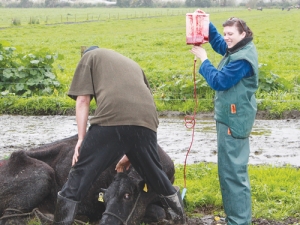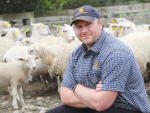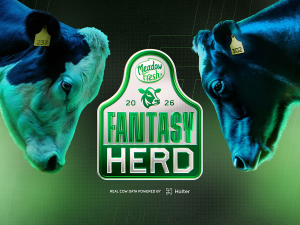More Government funding will enable 20% more veterinarians to be trained at Massey University.
Tertiary Education, Skills and Employment Minister Steven Joyce recently approved an increase in the number of domestic places in Massey University's Bachelor of Veterinary Science degree from 84 a year to 100. This will take effect with the next student intake in June 2016.
Students will be selected for the professional part of the programme which begins in semester two each year, after they have completed the required entry papers in semester one.
Veterinary programme director professor Tim Parkinson says the increase comes at a time when the demand for veterinarians worldwide is high.
"The veterinary profession remains a net growth sector, with increasing awareness of the interrelationship between animal and human disease, increased numbers of livestock to produce food for the increasing population, and a general increase in people's expectations about the health and welfare of animals."
Parkinson says alongside veterinary teaching, the university also holds a strong position worldwide in animal welfare, infectious diseases, epidemiology and livestock system research.
"Perhaps because of these strengths of the Massey degree, its veterinary graduates are snapped up by employers. This is reflected in the recent QS international rankings for university courses, which placed Massey's veterinary graduates as the most highly employable in the world – ahead of many larger and older schools."
In addition, Parkinson says, the vet school will enrol up to 24 full fee-paying international students each year, depending on demand and providing they meet the strict course intake requirements, which are among the toughest in New Zealand education.
Massey two years ago expanded and redeveloped its veterinary teaching. Facilities in the companion animal and equine hospitals have been refurbished to meet higher standards demanded by international accreditation agencies and to accommodate larger classes. New teaching laboratories will be finished in 2017.
The veterinary course has been offered since 1963 and is the only one in NZ. It is accredited by the Australasian Veterinary Board Council, the American Veterinary Medical Association and the Royal College of Veterinary Surgeons. It was the first veterinary programme in the southern hemisphere to achieve all three.
Massey's veterinary degree is also recognised through reciprocity with the South African Veterinary Association.


















